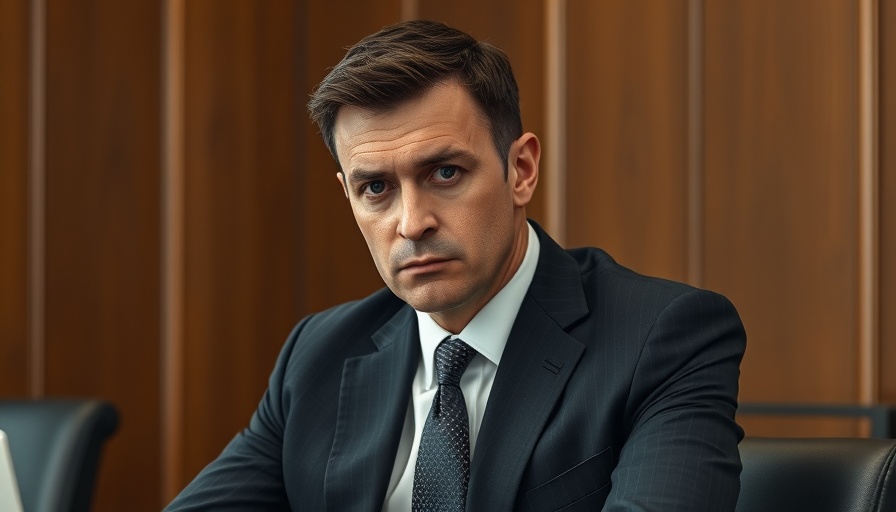
The Ongoing Saga of Yoon Suk Yeol: A Political Drama Unfolds
Former South Korean President Yoon Suk Yeol finds himself amid a contentious legal battle that has seen his brief yet controversial imposition of martial law scrutinized in recent months. A new arrest warrant approved by the Seoul Central District Court signals a serious continuation of legal challenges for the ousted leader, underscoring the delicate balance of power and governance in South Korea.
Context Matters: Understanding Martial Law in South Korea
To appreciate the gravity of Yoon's situation, it's essential to understand the historical context of martial law in South Korea. The nation has a complex history marked by authoritarian regimes and military rule, particularly from the late 1960s to the late 1980s. The imposition of martial law is often perceived as a significant regression in democracy and civil liberties, prompting widespread public concern and backlash.
The Legal Quagmire: What Are the Charges?
The court's decision to approve Yoon's arrest stems from allegations that he abused his presidential power when he declared martial law late last year. Prosecutors argue that he obstructed official duties, abused his position, and even falsified documents in the process. Yoon’s legal representatives describe these claims as excessive and unfounded, emphasizing the political motivations they believe could be behind this renewed arrest.
Public Reaction: Divided Loyalties
Yoon's presidency and impeachment remain polarizing topics in South Korean society. His supporters see him as a symbol of strong leadership in turbulent times, while critics view his actions as attempts to undermine democratic processes. This division is also reflected in public demonstrations advocating for both his indictment and his exoneration, illustrating how deeply political sentiments can influence societal dynamics in a nation striving for democratic consolidation.
A Historical Parallel: Similar Political Challenges in Asia
This case of Yoon Suk Yeol finds echoes in several other governmental crises across Asia, where leaders have faced legal repercussions for excessive exercise of power. For instance, former Japanese Prime Minister Shinzo Abe encountered significant scrutiny for his controversial policies and handling of dissent, leading to public outcry. Such incidents reinforce the idea that democracy is a work in progress, requiring vigilance from both the electorate and governing bodies.
The Future: Implications for South Korean Politics
The new developments surrounding Yoon’s legal battles raise pressing questions about the future of political leadership in South Korea. As the nation grapples with its democratic identity, these events serve as critical learning moments for both leaders and citizens. Will the handling of Yoon's case cultivate greater accountability among current and future leaders, or does it risk creating a cycle of political retribution?
What Lies Ahead: A Call for Democratic Integrity
Yoon's challenges bring about larger discussions regarding the health of South Korea’s democracy. The repercussions of these legal battles could prompt a reassessment of the laws that govern political figures, shaping the political landscape in the years to come. As the international community watches closely, the vigilance with which South Korea defends its democratic tenets may become both a lesson and a benchmark for nations wrestling with similar challenges.
As South Korea navigates this political storm, the ideals of justice, accountability, and transparency should be at the forefront of its democratic journey. Citizens, advocates, and political analysts alike have a critical role to play in demanding greater integrity from their leaders while fostering an environment where accountability is seen as a strength, not a weakness.
 Add Row
Add Row  Add
Add 




 Add Row
Add Row  Add
Add 

Write A Comment